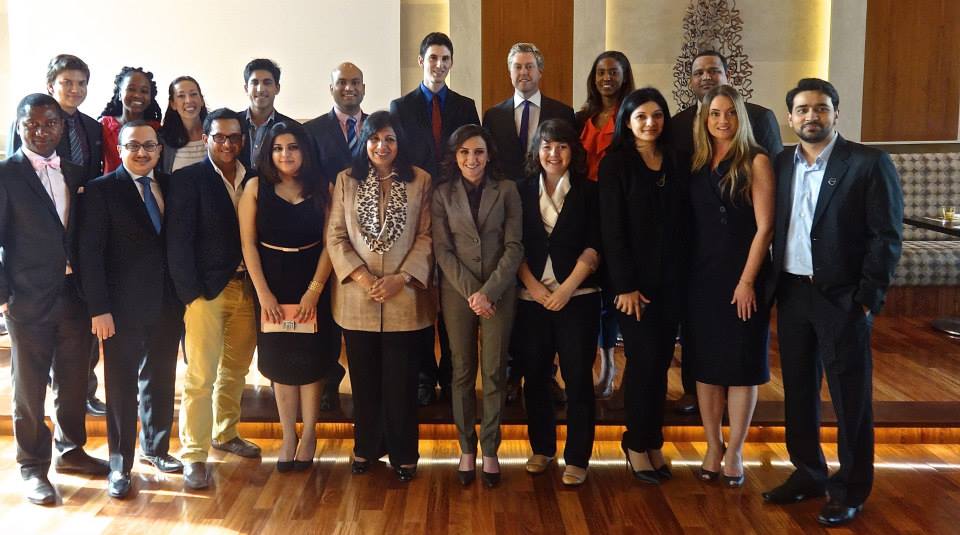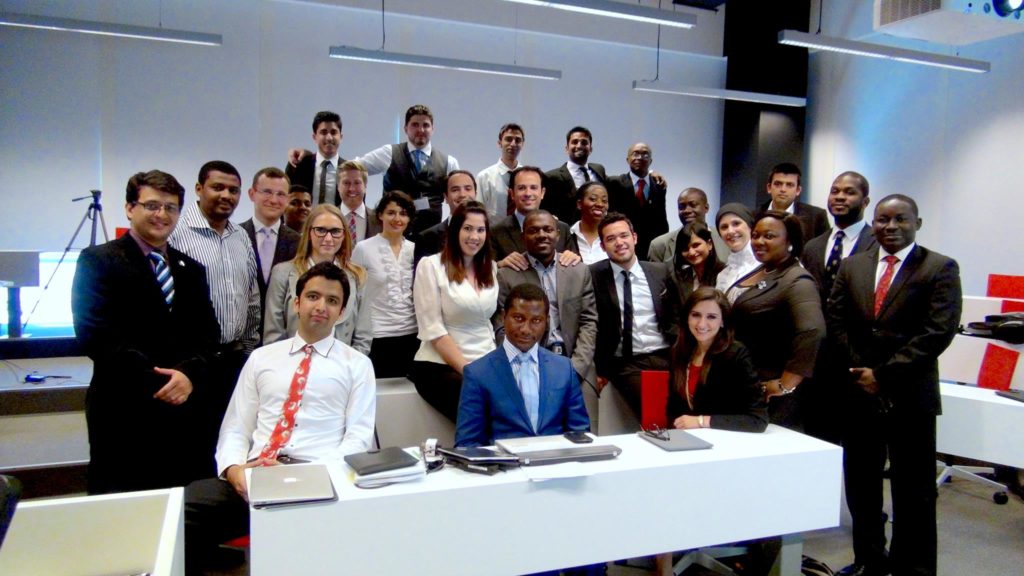During my university days and initial years at work, I had one definite and clear goal – to attain this supreme qualification, the CA. I was willing to sacrifice everything because I believed it was the key to success. I qualified as a CA at the end of 2012, around the same time I was completing my articles (a 3-year training program) at PwC South Africa. However, soon after qualifying I felt this huge anti-climax.
As a newly minted CA, I was expecting companies to be clamoring to hire me, however the recruitment consultants I spoke to were only referring me for internal audit or financial reporting type roles – this didn’t seem too enticing and was a big reality check.
The attainment of the CA qualification propels one to higher ambitions. I didn’t want to settle and pigeon-hole myself into a back-office type role so I found myself registering for the GMAT exam (the entrance exam for all MBA applicants) and investigating the requirements of the CFA course.
I ended up doing both. In this article, I will talk about the MBA and in my next article, I will share my thoughts on the CFA program.

I did a one-year MBA at HULT International Business School (“HULT”). HULT is a second tier business school with campuses around the globe. The reason I went to HULT is because at the time of applying for the MBA, most schools had already closed their applications for their 2013 in-take.
I didn’t have the patience to wait another year and the prospect of studying at three of HULT’s campuses in 3 different countries seemed too good to pass up. I chose to study in Dubai, Shanghai and London campuses. The other options were San Francisco, Boston and New York.

So do I regret my decision to do an MBA? Yes and No.
Jobs
The biggest piece of advice I could give to a CA considering to do an MBA is to aim for the best schools, i.e., those top tier school’s in the same category as the ivy league schools in the US. The business school you attend is the deciding factor and if you are not up in the top ten, your MBA qualification loses its punch.
The reason I say this is because the quality of the MBA and university branding is very important when it comes to job searching. There are too many sub-par business schools (including online universities) dishing out MBA degrees to students without rigorously testing them. Unlike the pain and suffering one has to go through to qualify as a CA, most MBA degree programs are a walk in the park.
In my case at HULT, I was able to travel the world with my class mates and at the end of the 12 months, receive an MBA degree certificate with minimal effort (and get on the deans list). Companies and recruiters are aware of this and the many inferior MBA’s in the market, as such they rely on the university branding or the candidates prior work experience when hiring.

As HULT is a second tier business school, I wasn’t very well received in the job market. While I did land an interview, it was at a very small consulting firm in Dubai.
Curriculum / Course content
But even putting that aside, you might just find that the content of the courses tend to be very high level and when you enter back into the real-world, you could find yourself operating at a level where you will be unable to apply what you have learned during the MBA. If anything you might initially find yourself saying stupid things that seemed appropriate in MBA case studies but which are not practical in your day-to-day work.
Now, your CA is a powerful business qualification which is recognized and stands firmly on it’s feet – adding a MBA is not going to make a huge difference to your skill-set. It does if you’re a scientist or an engineer but, as a CA it has far less of an impact. For the majority of MBA students, the most challenging subjects are accounting and finance. This is why most CA’s breeze through the MBA program.
That said, my MBA program got me very interested in marketing (but I should add that I learnt most of my marketing knowledge from the internet). Most CA’s have little exposure to the whole idea of sales and marketing, which is unfortunate because marketing and sales drives the business forward and creates most of the value. Knowing the fundamentals of marketing and understanding the sales funnel broadens the scope of ones perspectives and moves one closer to the executive level and further from the back-office reporting and control type roles.
Networking!!!
In my current role as a buy-side venture investment analyst (i.e., we invest in start-ups) I get approached by start-up founders. In March 2019, a guy from San Francisco pitched me his idea for a micro-credits business in Indonesia. At the time of the pitch, all he had was an idea and a beautiful pitch deck. No secured contracts and no technology.
Subsequent to that meeting in March, we would have monthly phone calls / coffee meetings so he could update me on his progress. Fast forward and by the end of that year, he had secured contracts with Unilever, Carrefour, and other major brands in Indonesia. He also managed to convince Kiva’s CTO and a Google engineer to join his company (for zero salary, but get equity in the business).
When I asked him, how was he able to get in touch with Unilever, Carrefour and connect with such talented people, he said it all came through his Wharton MBA network. In December 2019, he (Fairbanc) secured USD3 million from 500 Start-ups (a US venture capital firm).

As you can see from the above story, the biggest advantage of the MBA is the potential value of your network and the networking opportunities that are created. Furthermore, rubbing shoulders with students from a variety of disciplines creates fertile ground for expansive thinking.
Entrepreneurship
MBA graduates from the 90’s and early 2000’s would head-off to investment banks and top-tier consulting firms, however the trend today for MBA grads are large technology companies, joining a start-up or doing their own business.
Hence some CA’s may finish their MBA with a new mind-set and hive off to start their own business. Either they were encouraged and influenced by their classmates or over the course of the MBA, they slowly became comfortable with the idea of stepping out into the entrepreneurial space (which is a space that most CA’s find uncomfortable!).
That being said, please note that you DO NOT need an MBA to pursue entrepreneurship. All it takes is passion and perseverance. Anything you need to know can be found online and if you need to hire or partner with someone with a particular skillset, you can go to LinkedIn, Upwork or Fiverr.

My closing thoughts on 2nd tier business schools
Back to my story- while my MBA did not have a significant impact in landing me job interviews, it was due to my rotation to HULT’s Shanghai campus that got me interested in Asia. Hence I began searching for jobs in Hong Kong and Singapore. I have also noticed some of my HULT classmates (who came from different parts of the world, including South America, Africa, India and Pakistan) were able to find jobs in the cities where they studied (i.e., Dubai and London). Many have used the same methods which I teach in this free training.
Register for Free Training – 3 Secrets to Transform your Career and Find your Dream Job – (locally or abroad)
If you liked this article, please share it!
ABOUT THE AUTHOR:
Bilal is an internationally renowned coach for aspiring CA’s and CPA’s.
Bilal believes that CA’s are individuals with grit, perseverance and sound business and financial knowledge.
Yet he finds many not achieving their dreams and goals. He created this website to help young CA’s maximise their potential and fast-track their careers.
You might be interested to visit his LinkedIn page https://www.linkedin.com/in/bilalnoorgat/ to learn more about his background.
Leave a Reply